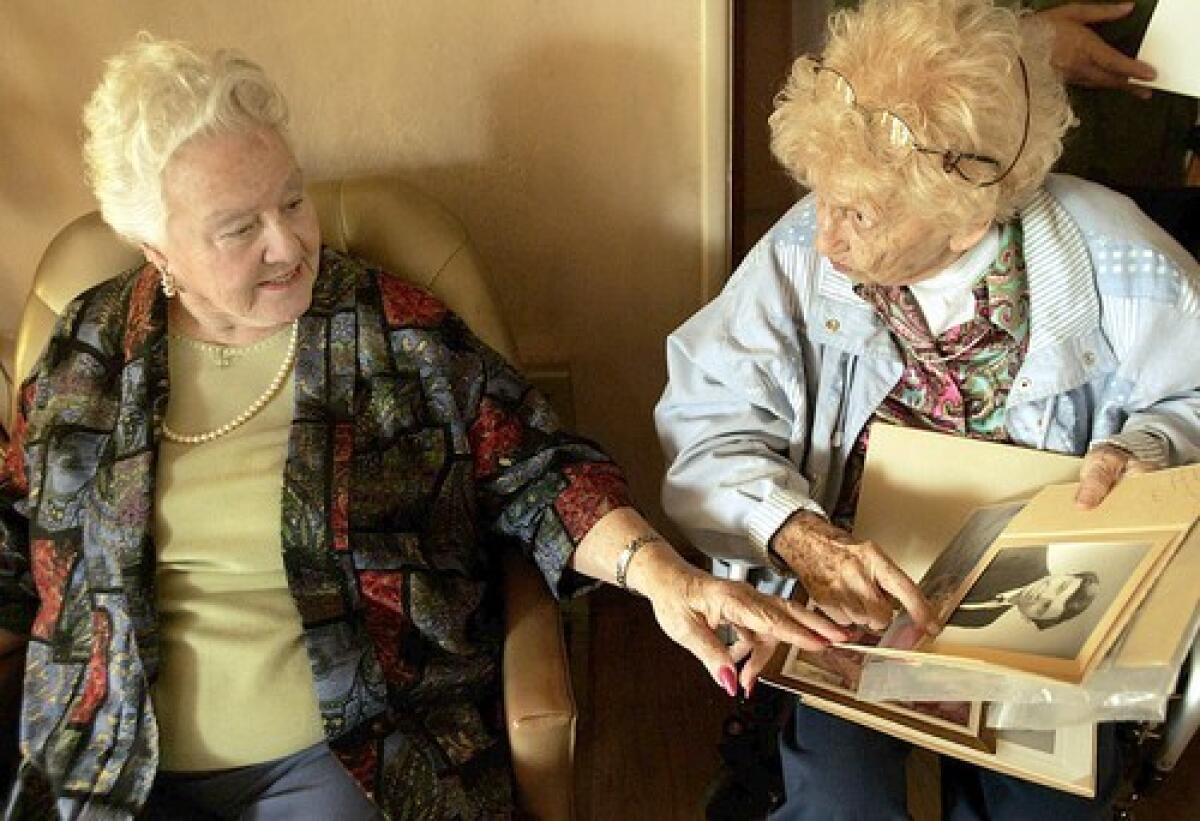April Trial Set for Woman Seeking to End Conservatorship

An 87-year-old Yucaipa woman contesting a conservatorship she has lived under for the last three years moved a step closer to a ruling Friday when a San Bernardino judge set an April trial date.
Helen Jones has said she did not understand a one-paragraph form she signed agreeing to turn her affairs over to San Bernardino’s largest professional conservator, Melodie Scott.
A judge awarded Scott, a stranger, immediate control at an emergency hearing in the fall of 2002, without Jones’ knowledge.
Jones said she thought she was signing up for Southern California Edison’s reduced-rate program for senior citizens called California Alternate Rates for Energy, or CARE, when in fact she had nominated Scott’s firm, Conservatorship and Resources for the Elderly, to be her conservator.
Conservators are court-appointed guardians who control the lives, property and finances of adults unable to manage their own affairs.
Jones, a widow and retired assembly line worker who saved $560,000 for her old age, has been trying for nearly two years to end the conservatorship. An earlier request was withdrawn by her lawyer. A more recent request had stalled in a series of hearings until Superior Court Judge W. Robert Fawke set the April trial date.
In an interview after Friday’s hearing, Jones said she was unhappy with the “long drawn-out affair.” Hearings have been months apart and typically end with no action other than another hearing.
“I thought everything was going to be terminated in September,” she said. “As long as there’s money in the bank account, they’re going to keep dragging it out.”
Scott, who has repeatedly declined to comment, was not in court Friday. Her lawyer, J. David Horspool, said she believes Jones needs a conservator.
But Horspool said Scott would agree to step down for another suitable conservator or agree to end the case if a doctor determines Jones has the mental capacity to run her own affairs.
Horspool said a court investigator who recently interviewed Jones had concluded that Jones needs some assistance, as has Jones.
The investigator’s report, ordered by a judge during a September hearing, is confidential.
Jones’ court-appointed lawyer, Donnasue Ortiz, said that although the investigator did say Jones would benefit from a conservator, Jones still wants to regain control of her life and her finances.
“She still wants to terminate it,” Ortiz said of Scott’s conservatorship.
Barbara Seifritz, a paralegal whom Jones approached two years ago for help in ending the conservatorship, said she found it unbelievable that the San Bernardino judge would wait until April to schedule Jones’ trial. “That’s a lifetime for a lady her age,” she said.
Jones’ case was highlighted in a four-part series on professional conservators in The Times last month. The articles, based on a review of more than 2,400 cases, described a system in which judges allowed professional conservators to take control of senior citizens’ lives in speedy hearings, often without the person’s knowledge or consent.
Legislative hearings have been scheduled in Sacramento over the next two weeks to hear testimony about systematic problems documented in the series, including neglect and unethical conduct by conservators and laxity by probate court judges who frequently failed to sanction incompetence, conflicts of interest and other problems.
Assemblywoman Carol Liu (D-La Cañada Flintridge) and other legislators have said they intend to introduce reforms.
A Depression-era Midwesterner, Jones moved to California as a young woman and worked in a string of low-wage jobs, such as riveting wing flaps on World War II fighter planes and stuffing bristles into nail polish brushes. She amassed her $560,000 nest egg through thrifty living and saving.
Jones ended up with a conservator after a chance acquaintance gave her a ride to a bank and a bank official suggested Scott’s firm could help her.
Jones is nearly deaf. She gets around in a wheelchair or a walker, her mobility limited by a rare nervous system disorder. But she is mentally sharp in interviews and insists she can run her own life — a belief shared by neighbors, longtime friends and relatives.
“I don’t dislike Melodie; it’s just that I don’t like the way she handles her business,” Jones said after Friday’s hearing. “Melodie said she’s frugal, but she doesn’t know what living frugal is.”
Jones complained that in more than 30 years of managing her own finances and paying her own bills, it never took as long as it takes Scott. The conservator charges Jones $450 a month for the 10 hours she says it takes to pay Jones’ bills, make deposits and perform other similar functions.
Jones also complained that Scott forces her to visit psychiatrists against her will.
One prescribed medication to treat schizophrenia earlier this year. Jones said she had never been diagnosed with any mental illness before the conservatorship and refused to take the drug.
She agrees that she needs caretakers to help around the house and drive her to doctors’ appointments and other errands, but said she can make her own decisions and handle her own finances.
Jones’ last remaining close relatives are two former stepchildren from a brief marriage late in life. They had not been in touch for years until they learned about her conservatorship from The Times. Since then, they have taken an interest in helping her.
Her former stepdaughter, Helen Tomazin, 78, of Oakhurst, drove Jones to Friday’s hearing. Tomazin and her husband said one of their sons, a special education teacher, would be willing to become Jones’ conservator if she needs one.
More to Read
Sign up for Essential California
The most important California stories and recommendations in your inbox every morning.
You may occasionally receive promotional content from the Los Angeles Times.










